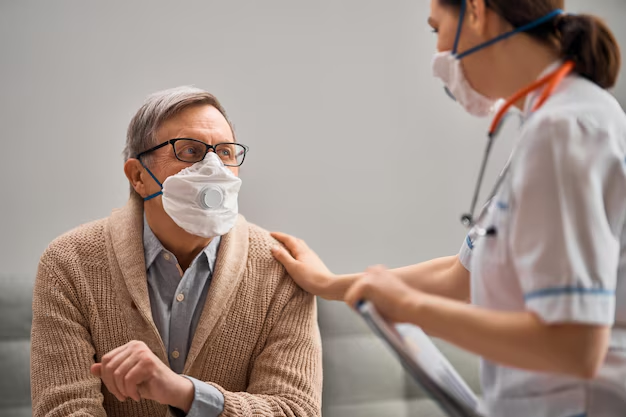Understanding Pneumonia Recovery: What You Need to Know
Pneumonia, an inflammatory condition of the lungs caused by infection, can disrupt daily life and lead to health concerns if not properly understood or managed. If you've recently been diagnosed with pneumonia or know someone who is recovering, you might be asking: how long does it really take to recover from pneumonia? The answer is nuanced, influenced by various factors such as age, overall health, and the type of pneumonia. This article takes you through everything you need to know about pneumonia recovery.
What Is Pneumonia and How Does It Affect the Body?
Pneumonia is an infection that inflames the air sacs in one or both lungs, potentially leading to fluid or pus filling those sacs. This condition can arise from bacteria, viruses, fungi, or simply through inhaling irritants. Symptoms might include coughing (which may produce phlegm), fever, chills, and difficulty breathing.
Types of Pneumonia
Understanding the type of pneumonia is crucial since it often determines the recovery process:
- Bacterial Pneumonia: Often more severe, caused by bacteria such as Streptococcus pneumoniae. Hospitalization might be required.
- Viral Pneumonia: Usually less severe but can lead to secondary bacterial infections.
- Fungal Pneumonia: Rare and requires specialized treatments.
Factors Influencing Recovery Time
The recovery time from pneumonia varies widely based on several factors. Here's what typically affects how quickly someone bounces back:
Age and General Health
- Children and Elderly: Both groups are more susceptible to pneumonia, and recovery might be slower due to immune system vulnerabilities.
- Healthy Adults: Generally, they experience quicker recovery, although this still depends on other lifestyle and health factors.
Severity and Type of Pneumonia
- Mild Cases: Often resolve within a couple of weeks.
- Severe Cases: Hospitalization may be necessary, leading to a prolonged recovery of several weeks to months.
Underlying Health Conditions
Those with chronic illnesses or compromised immune systems often face longer recovery periods and complications.
Typical Recovery Timeline
While each pneumonia case is unique, the recovery process often follows a general timeline:
Initial Days: Acute Phase
- Days 1-3: Symptoms might peak, requiring significant rest and possibly medical intervention.
- Days 4-7: Symptoms like high fever and severe cough might start improving; antibiotics or antiviral medications could start to show results if prescribed.
Intermediate Phase: Continued Healing
- Weeks 1-2: Most patients notice reduced symptoms but still experience fatigue and mild cough. Rest remains essential.
Long-term Recovery Phase
- Weeks 3-4: Many symptoms subside, although fatigue may persist.
- Weeks 5-8 and Beyond: Energy levels return to normal, and full recovery is often achieved, though some individuals may experience lingering effects like mild fatigue or coughing.
Practical Tips for Supporting Recovery
Recovery involves more than just medication; lifestyle adjustments can make a significant difference.
Rest and Nutrition
- Adequate Rest: Emphasize rest, which is crucial for healing, especially during the initial stages.
- Well-Balanced Diet: Nutrition rich in vitamins and minerals supports the immune system. Hydration is equally important.
Medical Follow-Up
- Regular Check-Ups: Attend follow-up appointments to ensure recovery is on track and to catch any potential complications early.
- Communicate Symptoms: Report worsening or new symptoms to healthcare providers promptly.
Avoiding Relapse
- Take Full Course of Medication: Even if symptoms improve, finishing prescribed medications prevents relapse.
- Avoid Smoking: Steering clear of cigarettes and pollution aids lung recovery.
Understanding Potential Complications
While many recover from pneumonia without issues, it's important to be aware of potential complications:
Common Complications
- Pleurisy: Inflammation of the linings around the lungs.
- Lung Abscesses: Pockets of pus in the lung tissue.
- Sepsis: A grave infection-related illness affecting the body's organs.
Reducing Risks
- Vaccinations: Vaccination against flu and pneumococcal bacteria lessen the risk of certain types of pneumonia.
- Prompt Medical Attention: Quickly addressing any complications is key to preventing worsening conditions.
Pneumonia Prevention for Healthier Lungs
Preventing pneumonia is beneficial for everyone, particularly for those at higher risk. Here's how you can contribute to stronger, healthier lungs:
Stay Vaccinated
- Seasonal Immunization: Annual flu vaccination and the pneumococcal vaccine significantly reduce the risk of pneumonia.
Hygiene Practices
- Frequent Handwashing: Regular hand cleaning avoids spreading germs that could cause pneumonia.
- Avoid Contact with Sick Individuals: Reducing exposure to coughs and sneezes lessens your risk.
Strengthen Your Immune System
- Regular Exercise: Engaging in physical activity boosts overall health and immunity.
- Adequate Sleep: Ensure you get quality sleep to maintain a robust immune response.
In conclusion, recovery from pneumonia can vary widely depending on various factors, including age, general health, and the type of pneumonia. Understanding these aspects helps you navigate the recovery process more effectively. With proper lifestyle adjustments, medical follow-ups, and preventive measures, you or your loved one can accelerate the journey back to full health.
🌟 Key Takeaways
- Recovery Time: Can range from a few weeks to months, depending on severity and overall health. ⏳
- Rest and Nutrition: Crucial for speeding up recovery and supporting the immune system. 🛌🥗
- Follow Medical Advice: Complete prescribed treatments and keep up with follow-up appointments. 💊🔍
- Preventive Measures: Vaccinations and good hygiene help reduce future risks. 💉🧼
- Complications Awareness: Stay alert to worsening or additional symptoms to catch complications early. ⚠️
Overall, with the right approach and patience, recovery from pneumonia is achievable. Prioritize your health, rest adequately, and consult healthcare professionals to navigate this process smoothly.

Related Articles
- a Typical Pneumonia
- Can a Cold Turn Into Pneumonia
- Can a Sinus Infection Turn Into Pneumonia
- Can Amoxicillin Cure Pneumonia
- Can Amoxicillin Treat Pneumonia
- Can Baby Oil Cause Pneumonia
- Can Bronchitis Turn Into Pneumonia
- Can Covid Turn Into Pneumonia
- Can Doxycycline Treat Pneumonia
- Can Flu Turn Into Pneumonia
